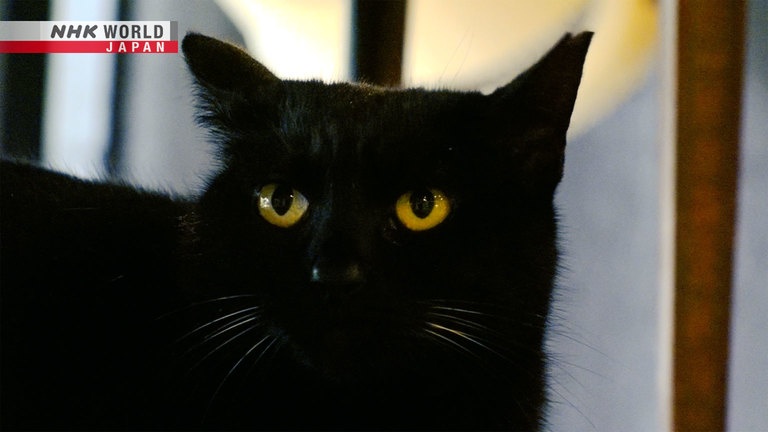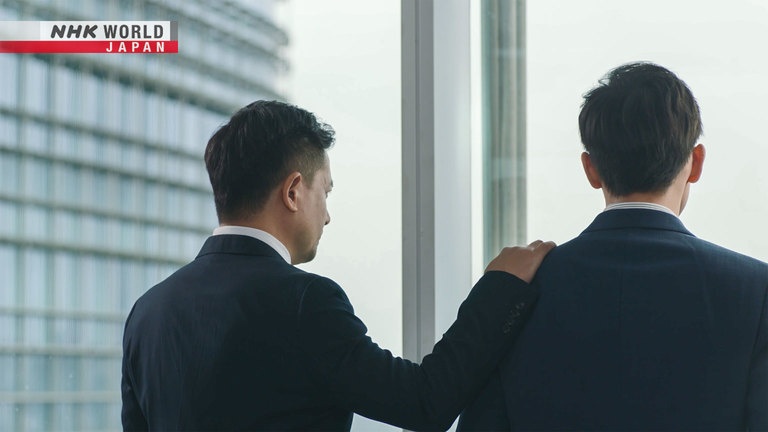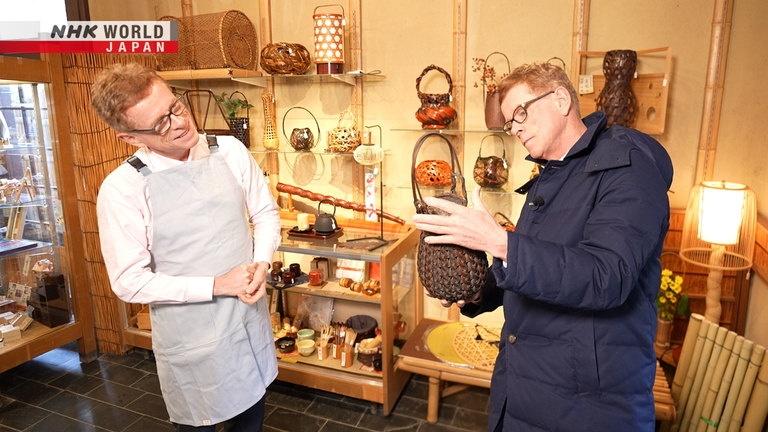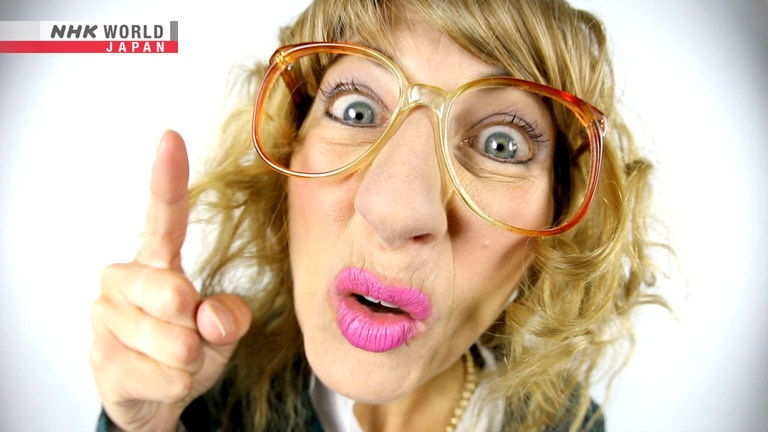Eye
This episode focuses on me (eye). Just like other languages, Japanese has a lot of words and phrases related to eyes, and they are often used in daily life.




Transcript
"Yukigesho."
"Karakurenai."
The Japanese language is rich in unique expressions that reflect nature and culture.
Magical Japanese.
Today's theme is "me" or "eye."
Hello, I'm Peter MacMillan.
Just like other languages, Japanese has a lot of words and expressions about eyes,
and they are often used in daily life.
Today, let me show you how some of them pop up in a normal day of my life!
I live in a Japanese house in Kyoto, with my four cats.
This one is Moon.
While I'm busy working, my cats patrol around every inch of the house.
"me o hikaraseru."
"Hikaraseru" means to make something shine or gleam.
It's used when looking at something with a sharp gaze, or monitoring something that could cause trouble.
Here, "me" refers to the act of looking or seeing.
The exam supervisor "me o hikaraseru" - watches closely - to catch any signs of cheating.
"me o hikaraseru."
After my cats are done making their rounds, it's lunchtime!
They get antsy and can't settle down, when they think that lunchtime is near.
We can express their behavior like this:
"me no iro o kaeru."
"Kaeru" means "to change."
"Iro" means "color," but it is also used for visible changes in a person's emotions.
This phrase is used when someone quickly shifts expression or attitude, due to anger, surprise, or enthusiasm.
He always "me no iro o kaeru" - changes expression -
when I bring up ways to earn money.
"me no iro o kaeru."
My cats did this.
Since I have four cats, there are scratches all over the house, but I never get mad at them.
"o me ni miru."
"O" means "large" or "wide," here it is associated with generosity.
"Miru" is "to see."
Together, they mean to have a generous heart when dealing with others, instead of being hard on their faults.
When it comes to mistakes made by new employees,
companies generally "o me ni miru" - tolerate - them.
"o me ni miru."
"me ni iretemo itakunai."
"Itakunai" means "doesn't hurt."
The phrase literally means, "doesn't hurt even if it enters the eyes."
Figuratively, it refers to something you adore so much, you wouldn't mind if it got in your eye.
"me ni iretemo itakunai."
Well then, I'm off to do some shopping.
The store is really close to my house.
We can express such a short distance with the following phrase.
"me to hana no saki."
"Hana no saki" is the tip of one's nose.
Just like the tip of your nose is the closest thing in sight, the expression describes a destination in very close range.
Our client's office is "me to hana no saki" - very close.
"me to hana no saki."
Well, I got everything I needed.
When I was about to pay, the cashier said this to me:
"ome ga takai."
Here, "o" is an honorific.
"Takai" means "at a high level," or "high-class."
And "me" refers to taste or judgment.
The expression is used to praise someone for their good taste.
This painting is wonderful.
Indeed, sir. "Ome ga takai."
- You have excellent taste.
"ome ga takai."
When I first started learning about Japanese culture, I was still a baby when it came to translation.
Editors would get really angry with me if I made a mistake translating a text.
The following expression is for such a situation...
"o medama o kurau."
"O" here means "big," "medama" is an "eyeball."
"Kurau" means to suffer some kind of damage.
Imagine someone scolding you with a furious expression, eyes bulging.
This is "o medama o kurau."
I forgot my homework for the third time this week.
I'm going to "o medama o kurau"
- really get told off - by the teacher.
"o medama o kurau."
When I first arrived in Japan, I noticed that the Japanese people had a different communication style from Westerners:
they would avoid eye contact during conversations.
This is an age-old custom.
Even if Japanese people don't look at you while you're talking to them,
it's important to remember that they are by no means disinterested or angry.
And, just like the rest of the world, the Japanese do, in fact,
use their eyes to express their emotions and read into how others feel.
Take this phrase, for instance.
"me wa kuchi hodoni mono o iu."
"Kuchi" is "mouth," and "iu" is "to speak."
The phrase translates as, "The eyes speak as eloquently as the mouth,"
and describes how your eyes can give away your feelings.
When I asked him if he'd forgotten my birthday, he denied it.
But his eyes were darting about.
"Me wa kuchi hodo ni mono o iu."
- The eyes speak as eloquently as the mouth.
"me wa kuchi hodoni mono o iu."
"hi no me o miru."
"Hi" means "the sun."
The phrase means to emerge out of darkness into sunlight.
It's used figuratively to describe people, activities, or works that gain attention,
often after a long period of obscurity.
Social networking services have helped the work of
previously unknown artists to "hi no me o miru" - see the light of day.
"hi no me o miru."
Your efforts to learn Japanese should also "hi no me o miru" someday!
Until we meet again! Bye!